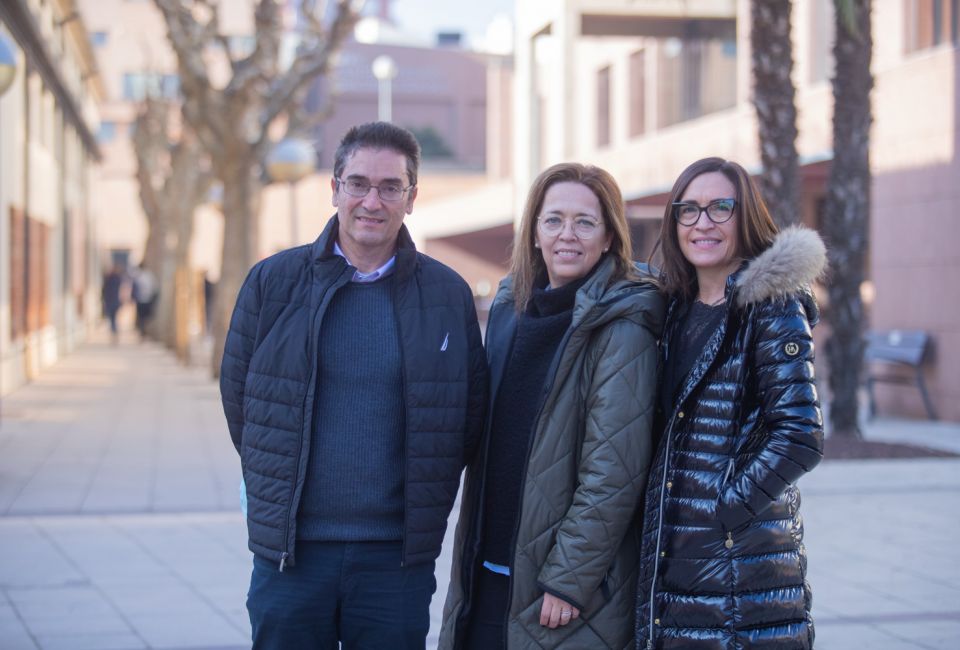
UVic-UCC researchers will develop tools and resources to encourage digital literary reading in classrooms
Digital literature, which has been created to be read on an electronic device, is an appealing and interactive form of narrative that encompasses the language of books, films, websites and radio, among other media. Scientific research addressing the impact of digital literature on students' reading is still limited. The European project Dilectings (Digital Literature Educational Competences for Teachers: Intercultural Inclusive Good-practices for Second Language Learning) has been launched in this context. It is funded by the Erasmus+ programme, and involves researchers from the University of Vic - Central University of Catalonia (UVic-UCC) and three other universities in Ireland, Italy and Romania.
The project aims to create tools to promote digital literature in schools and institutes, and to find new ways to improve the reading skills of both native and foreign language students, as well as those studying a second language. In short, it aims to use digital tools to promote the learning of reading, language and literature and at the same time, to contribute to fostering intercultural understanding and social inclusion, and to develop and consolidate ICT skills and abilities among children and young people. As a result, the work focuses on both older primary and younger secondary students and on their teachers, who play a crucial role in encouraging and expanding digital literary learning (DLL) and digital reading of literature (DRL).
Support for applying digital reading in the classroom
"Teachers and students need guidelines and support to apply digital reading - reading texts on mobile phones, tablets and computers - to literature," explains Mireia Canals, a researcher in the Gender Studies: Translation, Literature, History and Communication research group (GETLHIC) at UVic-UCC. "Boys and girls tend not to read very much literature, and what they do read is mostly short texts that they read quickly. However, on the other hand, they are very familiar with technology and digitalisation," adds Canals, who says that "we need to encourage reading, reflection, the generation of opinions and judgement, while at the same time achieving cross-disciplinary competencies in ICT and in reading, language and culture."
In addition to UVic-UCC, the Dilectings project also involves researchers at the Università degli Studi Roma Tre (Italy), who are leading the project, the West University of Timisoara (Romania) and Trinity College Dublin (Ireland). Four schools are also taking part, which each have links to the university in their country. UVic-UCC will be doing its fieldwork with the Miquel Martí i Pol secondary school in Roda de Ter (Osona), while the other schools participating in the project are The King Hospital and Free School of King Charles the Second (Ireland), the Instituto Comprensivo Vitruvio Pollione in Rome (Italy) and the Colegiu National da Arta "Ion Vidu" (Romania). In addition to Mireia Canals (the lead researcher), the research team involved on behalf of UVic-UCC is made up of Pilar Godayol (the coordinator of GETLHIC) and Àngel Raluy, of the Research Group in Education, Language and Literature (GRELL). The project, which began in January this year and will end in January 2025, has a total budget of 344,586 Euros.
A digital platform for sharing
The first working meeting of the eight partners involved in the Dilectings project took place on 28 February. The initial phase of this research will involve an analysis of the teachers' and students' specific needs in their reading, the platforms they use and the way in which they approach reading. After obtaining a snapshot of the current situation, the universities participating in this project will work with a digital platform that is already active, which will contain several online modules for teacher training. This will be a space for interactive intercultural digital activities aimed at improving story reading, digital reading and digital story writing (with materials for authors, stories, discussion groups, reading clubs, writing workshops, etc.).
This open and flexible distance education platform, which is based on Moodle, will provide a central reference point connecting teachers, students and schools involved in the project in the field of DLL and DRL in Europe, with content managed by UVic-UCC and adapted by each centre. "Texts will be created to work on both reading and writing and debating activities, among other skills, in the framework of an inclusive environment, with joint participation, working on interculturality and the use of foreign languages," explains Mireia Canals. The platform will be particularly usable on mobile devices, as it will automatically adapt the graphic and textual features of the courses.
The teachers at the schools involved will also be provided with a training activity to assist them with the skills they need to transfer the contents of the modules of the digital platform into their teaching practice. The aim is for schools to be able to share the resources available on the platform. Among these resources, starting with the initial phase of the project, we will be working with the European eTwinning programme and the School Education Gateway platform, and in the final phase of the project, on a smart Toolkit, which will provide teachers with support for the learning, assessment and exchange of DLL and DRL skills. The project will also culminate in the creation of an e-book that will include guidelines for schools in digital literary literacy and digital literature reading. The UVic-UCC research team is aiming for this project to be able to be replicated in other primary and secondary schools in Catalonia.